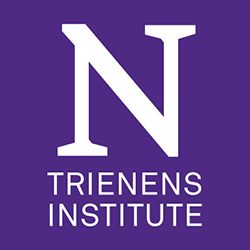
Trienens Institute Generate Pillar Seminar
Join the Paula M. Trienens Institute for Sustainability and Energy for an event supported by the Generate Pillar, one of Six Pillars of Decarbonization. Professor Jinsong Huang from the Department of Applied Physical Science at the University of North Carolina, Chapel Hill will give a presentation "Defects in Metal Halide Perovskites."
What: "Defects in Metal Halide Perovskites"
Who: Professor Jinsong Huang, Univ. of North Carolina, Chapel Hill
When: June 12, 10:30am-11:30am
Where: Ryan Hall, Room 4003
Abstract: Electronic defects within the band gap of semiconductor materials play critical roles in determining the efficiency and stability of semiconductor devices. Eliminating deleterious defects in semiconductors or passivating them has become one most important approach to improve the performance of the electronic devices. This scenario is also prevailing in the metal halide perovskite solar cell community which has witnessed a rapid increase of the power conversion efficiency (PCE) of perovskite solar cells from 3.8% to close to 27% with overwhelming reported progress on defect passivation strategies which also enhance the stability of perovskite solar cells. Similar improvement of performance has also been observed for spectroscopic X-ray detectors with dramatically improved energy resolution.
Defects in perovskites have already been intensively studied in recent years, but there is still no consensus on the defect chemical nature, density, spatial distributions, and their evolution during degradation. In this talk, I will first present our demonstration that using the drive-level capacitance profiling (DLCP) technique to profile both the spatial and energetic distributions of charge traps in perovskite solar cells. Then I will report our progress in combining the DLCP technique with electrical poling to determine the charge states and eventually the chemical nature of mobile defects in perovskites. This study revealed some astonishing discovery on the defects in perovskites of different compositions, and mechanism of solar cell degradation under reverse bias and under illumination, and defect cleaning using applied bias in X-ray detectors.
Speaker Biography: Jinsong Huang is currently Louis D. Rubin, Jr. Distinguished Professor at University of North Carolina at Chapel Hill. He received his PhD degree in Material Science and Engineering from the University of California-Los Angeles in 2007. After working in a small business company for two years, he joined the University of Nebraska-Lincoln in 2009 as an assistant professor in the Department of Mechanical and Materials Engineering, and was promoted to associate professor in 2014, and professor in 2016. He joined the faculty in the department of Applied Physical Sciences of University of North Carolina at Chapel Hill in 2017. His current research interests include solution processed electronic materials for applications in energy, sensing, and consumer electronics. He has authored nearly 300 publications, 50 patents, and10 books and book chapters.
Audience
- Faculty/Staff
- Post Docs/Docs
- Graduate Students